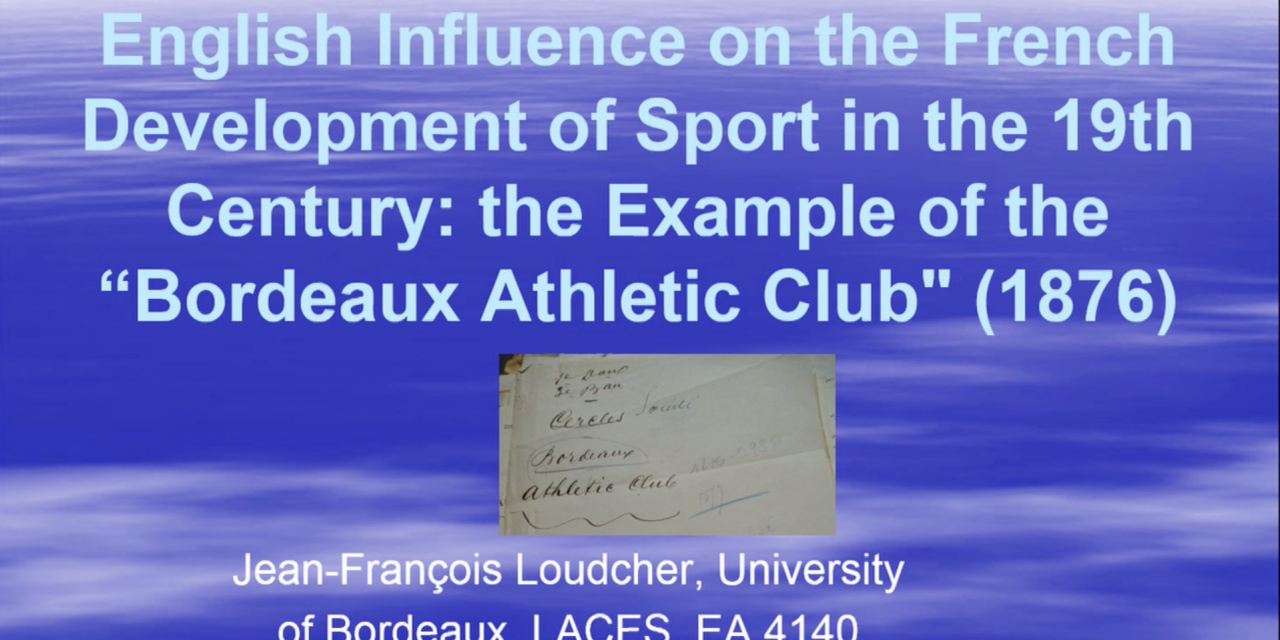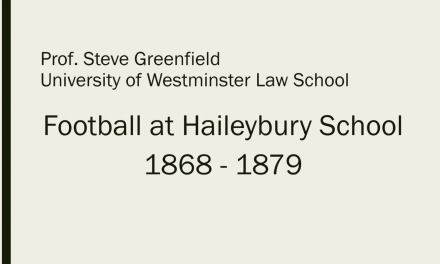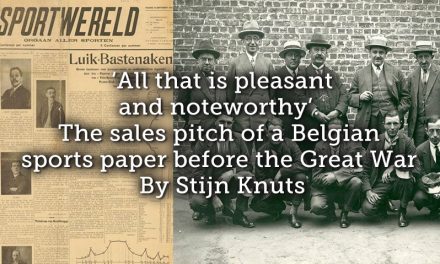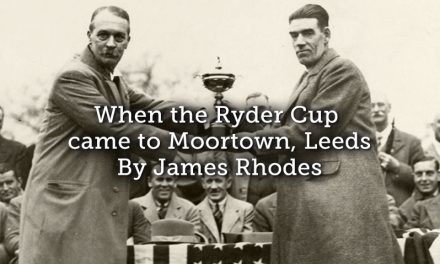Presented by: Jean-François Loudcher, Professor, University of Bordeaux, LACES, EA 4140
English Influence on the French Development of Sport in the 19th Century: the example of the “Bordeaux Athletic-Club” (1876)
British influence on the development of French Sport during the XIXth century was scarcely studied. Traditionally, the Havre Athletic Club (1872) is evoked; it was the most famous one and gave birth to the first athletic association. But, we know quite few of the British influence from the beginning of the century. A lack of general view may be pointed out. Thus, the very first boxing demonstration on the Champs-Elysées occurred in 1814 (Loudcher, 2000), and it was not really a success. After that, the British sport influence spread out in Paris in running and rowing as well as horse running.
The South West of France was a dynamic place for English sport. In 1856, the first continental golf set in Pau and the British loved visiting Biarritz, Bayonne and the seaside. In Bordeaux, the English influence was also particularly strong. Similarly to “Le Havre Athletic Club”, the commercial activity brought some English people for establishing, generally for a while, some sports who gave the opportunity to some French people of attending and/or practicing steeple-chase (Le Train de Plaisir, 2 May 1858, 2), rowing (1870) or yachting (1869). Especially, a club was founded in 1876 called; the “Bordeaux Athletic-Club”. Eleven of the fourteen founder members were supposedly English. Among them, the leader, M. Thomas B. Small, asked for an official permission deposited at the “Prefecture de Police” for playing football and cricket, involving French and English people, on a ground located at Merignac. But, as the social registration of this club were at the Chateau Barbier, a famous place for white wine, and under the charge of the Cauderan’s municipality, a small controversy arose and brought at our disposal some letters between the Prefects of Bordeaux, Cauderan and Merignac.
Who were these people? Did T. B. Small work in a trading wine company which gave him some opportunities to import easily English sport? Which were the contacts of these players, both in England and in France? What did they really practice? Based on original archives, this communication will try to answer these questions in order to understand in what extent this club was original in the local context of South West and new political regime (Third Republic) in France.
Article © Jean Francois Loudcher





